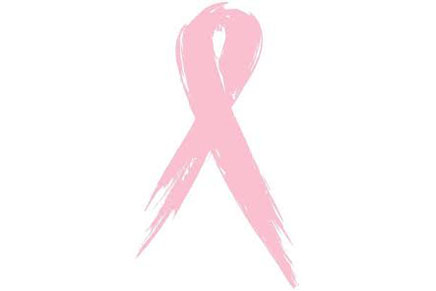
By Dr. Deanna Attai
Breast cancer is the most common cancer among women, affecting approximately 1 in 8 over a lifetime. Men are also affected, at a rate of approximately 1 in 100. All women should have an awareness of the changes that occur in their breasts, and should undergo routine evaluation and imaging (such as mammogram, ultrasound, or MRI if appropriate) at recommended intervals.
As a breast surgeon, I focus not only on the treatment of disease, but on prevention as well. While having a family history of breast cancer increases your risk, all women are at risk. Unfortunately in any one individual, it is not currently possible to say exactly why breast cancer developed, but we are becoming more aware of the effects of lifestyle and environmental influences on the development of cancer as well as other diseases.
A healthy lifestyle does not equal prevention in all cases, but here are some facts regarding breast cancer:
1. Postmenopausal women who are overweight have a higher risk of developing breast cancer, and if they’ve been treated for breast cancer, their risk of recurrence is increased if they are overweight
2. Moderate exercise has been shown to reduce the risk of breast cancer development as well as the risk of recurrent disease
3. A high fat diet has been linked to an increased risk of breast cancer
4. More than one alcoholic drink per day (in women) is associated with an increased risk of breast cancer
5. Exposure to some environmental toxins, such as BPA, has been linked to breast cancer development in laboratory animals.
The link between breast cancer and various chemicals is the subject of intense research and there are many conflicting studies. Until we have firm data, however, it does seem prudent to limit your exposure to toxic chemicals whenever possible.
Remember though that it is possible to do everything “right” and still develop breast cancer. The reality is that breast cancer and many other diseases are caused and exacerbated by multiple factors – this is why studies evaluating methods of prevention are so difficult. It’s also why the studies that pop up every so often regarding the benefits of a particular nutrient or extract need to be placed in proper perspective – it’s usually not as simple as one nutrient or extract.
My recommendation for all of my patients, not just those with breast cancer, is to simply take good care of yourself. As we age (and we’re all getting older!), our bodies become less tolerant of the effects of lack of sleep, heavy alcohol intake, and the dietary habits that we had when we were in our 20’s. Our bodies have changed, and we have to change our habits if we want to try to stay healthy.
Guidelines to Leading a Healthy Lifestyle:
1. Focus on healthy fats such as olive oil, salmon, walnuts, avocado. Avoid inflammatory fats like hydrogenated oils, vegetable oil, canola oil, corn oil, and fried or processed foods.
2. Plant-forward diet – focus on lots of greens and veggies of all colors, as well as fruits. You may feel it’s easier to take your fruits and veggies in pill form, but while you may be getting some of the vitamins and extracts, the way the real foods interact is very complex (cancer development is a similarly complex process) and cannot be replicated in a pill. Trace nutrients that we may not even know about will also be missing, as well as fiber, not to mention the wonderful taste of properly prepared, fresh, real food! A periodic splurge is also fine – life is too short to go without chocolate – just make it is good quality, dark if possible. There is no one particular diet felt to reduce the risk of cancer development.
3. Animal protein is ok, just consider the source and eat in moderation
4. Don’t forget non-animal sources of protein such as legumes and quinoa
5. Moderation in alcohol intake – 0-1 drink per day (and no, you can’t save up your week’s “allowance” for Friday night…)
6. Moderate exercise – it’s ok if you can’t do you spinning class as you did 10 years ago – a good 30-minute walk once a day is fine. If you need that endorphin rush of strenuous activity, make sure to balance it with some more meditative exercise such as yoga or pilates
7. Proper sleep – we all need 7-9 hours a night, period. Our bodies repair themselves during sleep, and you can’t just “catch up” on the weekends. Those that catch me online after 10 pm pacific time – feel free to call me out on this one!
8. Meditation / Reflection – it is so very important to take some time each day to reflect on what is good in your life – having a sense of appreciation and gratitude for the good things will help make it easier to get through the tough times. This can be as formal or informal as you want, it’s just important to fit this in somewhere.
Those are the basics, and I welcome comments and suggestions from others on these points. Just remember that you’re not doing this specifically for breast cancer prevention – these are steps to make you a healthier and happier person.
For more information and resources regarding breast cancer diagnosis, treatment, prevention, and support, visit: https://www.mayoclinic.org/diseases-conditions/breast-cancer/symptoms-causes/syc-20352470 and https://www.creditcards.com/credit-card-news/support-breast-cancer-awareness.php